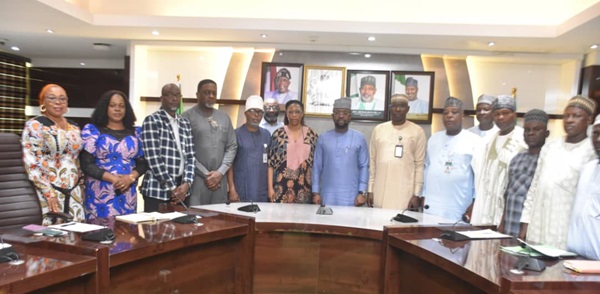
The permanent secretary of the Federal Ministry of Agriculture and Food Security, Temitope Fashedemi, has inaugurated a technical working group (TWG) dedicated to the development of a comprehensive database for farmers.
This initiative aims to create an efficient and seamless data capturing system to enhance agricultural support and resource distribution.
During the inauguration, held recently in the ministry’s conference room in Abuja, Fashedemi emphasised the importance of this committee in shaping the future of Nigerian agriculture. He noted that accurate identification of farmers is crucial for delivering targeted agricultural inputs and support. This, he said, would improve the effectiveness of agricultural programmes and ensure resources reach the right beneficiaries.
The permanent secretary highlighted the ministry’s plan to collaborate with the National Identity Management Commission (NIMC) to build a robust database. This partnership is expected to enhance the accuracy and reliability of the data collected.
Fashedemi also referred to a recent initiative where the minister inaugurated the National Executive Committee on the Implementation of the Nigeria Farmers’ Soil Health Card Scheme. This scheme aims to boost agricultural productivity and contribute to a food-secure future for Nigeria, in line with the current administration’s agricultural mandate.
The TWG, led by the director of the department of planning and policy coordination and comprising directors from various technical departments and a representative from NIMC, is tasked with developing effective strategies for collaboration between the ministry and NIMC. Their goal is to ensure seamless data capture and management.
Director of the card management services department at NIMC, Dr. Peter Iwegbu outlined the commission’s role in managing the national identity database. NIMC is responsible for registering individuaals, assigning unique national identification numbers (NINs) and issuing general multi-purpose cards (GMPCs) to Nigerian citizens and residents. Iwegbu highlighted that the programme would facilitate the government’s ability to manage interventions, validate soil conditions, target support effectively and improve the predictability and channeling of resources to farmers.
According to a statement by the ministry’s director of information signed by Anthonia Eremah the TWG’s terms of reference (TOR) include developing a comprehensive work plan with clear timelines, roles and responsibilities for each phase of the data capture initiative. They are also tasked with designing robust data collection tools and methodologies to gather essential farmer information, such as personal identification, farm size and crop types. Additionally, the committee will identify training programmes for field officers and data collectors to ensure data accuracy and consistency. Establishing clear terms for collaboration between the ministry and NIMC and addressing any other relevant directives are also part of their responsibilities.
The TWG’s membership includes representatives from both the ministry’s technical departments and NIMC, ensuring a collaborative approach to achieving the initiative’s goals.


